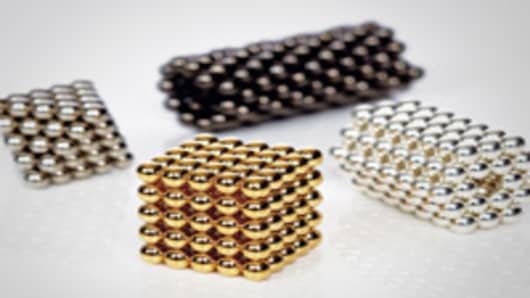The House Energy and Commerce subcommittee hearing will focus on changes made to a 2008 product safety law, including efforts to reduce the cost of product testing. But panel chair Rep. Mary Bono Mack, R-Calif., is also concerned about the the Buckyballs issue and plans to ask commissioners about it, says spokesman Ken Johnson.
"While I'm very concerned about the dangers posed by these magnets, where do you draw the line?" Mack said in a statement. "There are countless products intended for adults only that can harm our kids if they fall in the wrong hands. You can't ban everything."
In its ads, Buckyballs maker Maxfield & Oberton says the government is unfairly targeting its small business. But in a statement Wednesday, CPSC said 11 of 13 sellers of similar Chinese-made magnets have voluntarily agreed to its request that they stop the manufacture, import, distribution and sale of their magnets. CPSC's Scott Wolfson says this shows "our actions and attention to this safety issue is not limited to Maxfield & Oberton."
Nanodots, Buckyballs' biggest competitor, says it agreed to stop selling its product in the U.S. two months ago. Tim Szeto, president of Nanodots' parent company, says a safer version of Nanodots will be out in the next two weeks. Szeto says he has no reports of Nanodots being ingested and credits the "scary" warnings and focus on sales to adults that the company has had from its launch in 2009.
This month, CPSC staff also plan to give commissioners what's known as a briefing package on their rulemaking options for "rare earth" magnetic desk toys and similar products. The options would likely include requirements for safer designs and labeling, as well as an outright ban.
In its ad, Maxfield & Oberton questions how warning labels are OK "for balloons, corded baby monitors, and other common household items dangerous in the hands of children, but are not acceptable for products marketed only to adults, like Buckyballs and Buckycubes."
"We gave warning labels a chance … for an extended period" with Buckyballs, Wolfson says. "This is a growing, emerging hazard. We need to act now to prevent a death from happening." The CPSC case, to be decided by a federal administrative law judge, is only the commission's second in 11 years seeking to ban a product.


